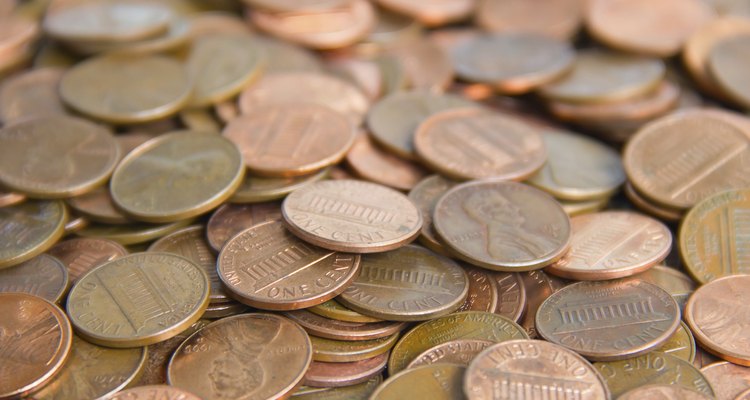
swisshippo/iStock/Getty Images
Penny wars fundraisers -- often used in schools or similar settings -- raise money for a shared goal while engaging participants in a friendly, spirited competition. Classes compete against each other to collect the most pennies, which are then used to purchase something for the school or organization. Campus groups or corporate divisions might compete against each other to raise funds for a designated charity or community program. Simple to run, penny wars are attractive fundraising choices because they require no door-to-door selling and are extremely inexpensive to conduct.
Fundraiser Purpose
Clearly identify the goal of your fundraiser and publicize it widely to potential participants. School penny wars could be designed to raise money for new playground equipment, classroom supplies or extracurricular programs. Others may raise funds for cancer awareness, a community charity or another similar purpose. Establish the time frame for your event; school penny wars typically last five consecutive school days, while corporate events may be spread over a longer period of time. Finally, publicize the rules of who can participate, where and how money can be turned in, if coins other than pennies are accepted and prizes, if any, for the winning participants.
Set Up Your Fundraiser
One of the best things about a penny wars fundraiser is that it requires very little in the way of materials. You'll need one collection container for each participating classroom or entity. These can be large jars, sturdy cardboard boxes or plastic piggy banks. Make labels for each container with the fundraiser's name, purpose and dates on them and affix to the containers. Create publicity signs or posters and post these around the school or the town where the fundraiser is being held. For school fundraisers, ask the administration if the event can be announced over the public address system the week before to build up participants' excitement.
Basic Penny Wars
The traditional approach to a penny wars fundraiser is simply for each participating group to collect as many pennies as possible during the specified period. In a school fundraiser, for example, students are encouraged to bring in pennies all week and classes or grade teams compete against each other to collect the most. The school might hold an assembly at the end of the week to announce the winners and the grand total collected. The winning class might win a small prize, such as an extra recess, a pizza party or lunch with the principal.
Points System Approach
You can also set up your penny war on a points system, with participants competing to obtain the highest point totals. Pennies are awarded positive points and other denominations are awarded negative points. Each participating group seeks to maximize its points by getting as many pennies as possible in their containers, preventing other denominations from being slipped in, and trying to put non-penny coins or bills into others' containers. It's a win-win situation: The team with the most points wins the competition, and the fundraiser gets more money than just pennies because teams try to knock others out with negative-point -- but higher value -- coins and bills.
Related Articles

How to Form a Pub Crawl to Raise Money

Competition Theme Ideas

How to Plan a Poker Run

How to Organize a Charity Sports Event

Ideas for Social Committees

How to Advertise in Church Bulletins

Ideas on How to Organize a Fun Day for ...

Chinese Auction Gift Ideas

Funding for Christian Projects

How to Organize Community Service Events

College Homecoming Theme Ideas

How to Organize a Clothing Drive

How to Host a Charity Date Auction

Types of Extrinsic Motivation

What Happens During a School Pep Rally?

How to Donate Trophies to Be Refurbished

Free Sunday School Lessons for the 7th ...

How to Make Money Hosting a Foreign ...

Youth Group Newsletter Ideas

How to Organize a Church Bazaar
References
Writer Bio
As a national security analyst for the U.S. government, Molly Thompson wrote extensively for classified USG publications. Thompson established and runs a strategic analysis company, is a professional genealogist and participates in numerous community organizations.Thompson holds degrees from Wellesley and Georgetown in psychology, political science and international relations.
Photo Credits
swisshippo/iStock/Getty Images